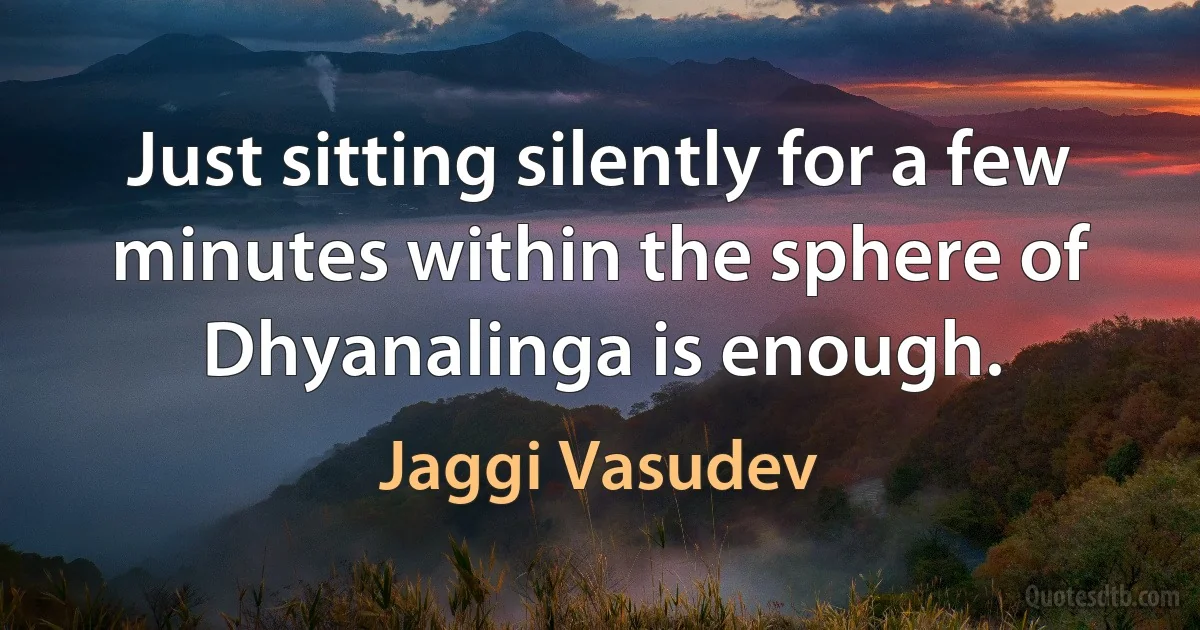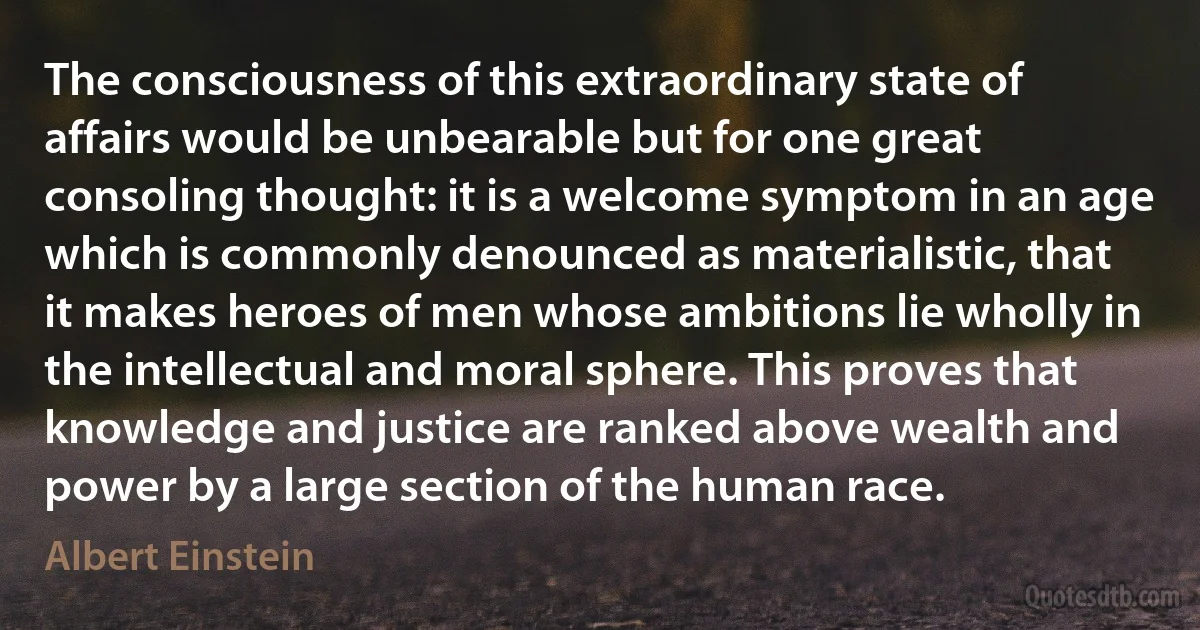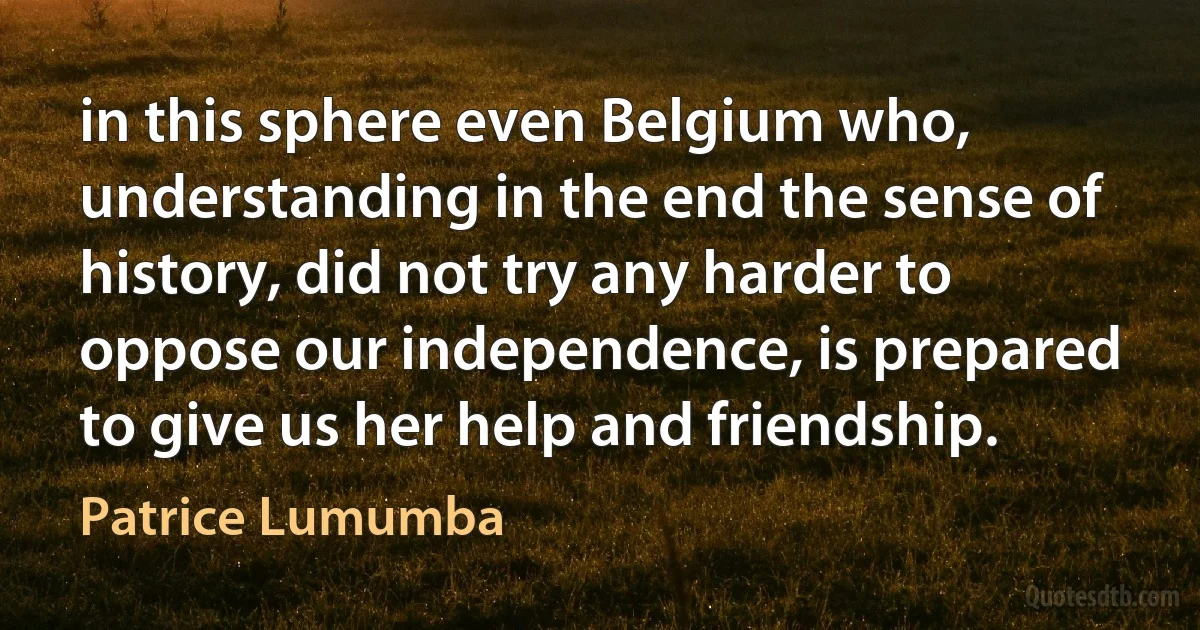Sphere Quotes - page 17
Don't aim at any impossible heroisms. Strive rather to be quiet in your own sphere. Don't live in the cloudland of some transcendental heaven; do your best to bring the glory of a real heaven down, and ray it out upon your fellows in this work-day world. Seek to make trade bright with a spotless integrity, and business lustrous with the beauty of holiness.

William Morley Punshon
The genuine rationalist does not think that he or anyone else is in possession of the truth; nor does he think that mere criticism as such helps us achieve new ideas. But he does think that, in the sphere of ideas, only critical discussion can help us sort the wheat from the chaff. He is well aware that acceptance or rejection of an idea is never a purely rational matter; but he thinks that only critical discussion can give us the maturity to see an idea from more and more sides and to make a correct judgement of it.

Karl Popper
Since the settlement of [the] Constitution, now nearly two centuries ago, England has never experienced a revolution, though there is no country in which there has been so continuous and such considerable change. How is this? Because the wisdom of your forefathers placed the prize of supreme power without the sphere of human passions. Whatever the struggle of parties, whatever the strife of factions, whatever the excitement and exaltation of the public mind, there has always been something in this country round which all classes and parties could rally, representing the majesty of the law, the administration of justice, and involving, at the same time, the security for every man's rights and the fountain of honour.

Benjamin Disraeli
In communist society, where nobody has one exclusive sphere of activity but each can become accomplished in any branch he wishes, society regulates the general production and thus makes it possible for me to do one thing today and another tomorrow, to hunt in the morning, fish in the afternoon, rear cattle in the evening, criticize after dinner, just as I have a mind, without ever becoming hunter, fisherman, shepherd or critic.

Karl Marx
The homogenizing of European man ... requires a justification: it lies in serving a higher sovereign species that stands upon the former which can raise itself to its task only by doing this. Not merely a master race whose sole task is to rule, but a race with its own sphere of life, with an excess of strength ... strong enough to have no need of the tyranny of the virtue-imperative.

Friedrich Nietzsche
The first glance at History convinces us that the actions of men proceed from their needs, their passions, their characters and talents; and impresses us with the belief that such needs, passions and interests are the sole springs of action - the efficient agents in this scene of activity. Among these may, perhaps, be found aims of a liberal or universal kind - benevolence it may be, or noble patriotism; but such virtues and general views are but insignificant as compared with the World and its doings. We may perhaps see the Ideal of Reason actualized in those who adopt such aims, and within the sphere of their influence; but they bear only a trifling proportion to the mass of the human race; and the extent of that influence is limited accordingly. Passions, private aims, and the satisfaction of selfish desires, are on the other hand, most effective springs of action.

Georg Wilhelm Friedrich Hegel
It seems to me that the idea of a personal God is an anthropological concept which I cannot take seriously. I feel also not able to imagine some will or goal outside the human sphere. My views are near those of Spinoza: admiration for the beauty of and belief in the logical simplicity of the order which we can grasp humbly and only imperfectly. I believe that we have to content ourselves with our imperfect knowledge and understanding and treat values and moral obligations as a purely human problem-the most important of all human problems.

Albert Einstein
The most serious problems lie in the financial sphere, where the economy's debt overhead has grown more rapidly than the ‘real' economy's ability to carry this debt. ... The essence of the global financial bubble is that savings are diverted to inflate the stock market, bond market and real estate prices rather than to build new factories and employ more labor.

Michael Hudson (economist)
This whole sphere, this whole world of Knowledge and the Master and, practicing, and devotion, and participation and all that- This is traditionally in India is called the path of devotion, bhakti marg. All the Masters came from this. All the Sikh gurus came from this. All the Masters you talked about came from this. It is regarded as the highest path, inclusive of Buddha- Because any time, any time there is a Master, wants to talk about a living thing, boomf. That's where they find themselves. And, amazingly, enough, it is not called the path of enlightenment, and it is not called the path of Knowledge, and it is not called the path of service, and all of those things, inclusive, it is then given the name. And the name is devotion.

Prem Rawat
In the heart of the sphere of everything that keeps changing, there one thing that never changes-life. Life is the one thing that stays with me until the very end. Today, people may like me. Tomorrow, they may not. But my life is still there. It is not subject to good and bad. Human beings are the thinkers-homo sapiens-the ones with the brains. We can think about things, and in our thoughts, everything keeps changing. In our moods, everything keeps changing. Yet, in our beings, there is the heart, and the heart does not change because it is consistent with only one thing. Our needs on the outside change all the time, but the heart's need never changes. It is consistently the same, and always will be.

Prem Rawat
Nothing, I am sure, calls forth the faculties so much as the being obliged to struggle with the world; and this is not a woman's province in a married state. Her sphere of action is not large, and if she is not taught to look into her own heart, how trivial are her occupations and pursuits! What little arts engross and narrow her mind!

Mary Wollstonecraft
There may be, and there ought to be, progress in the moral sphere. The moral truths which we have inherited from the past need to be expanded and restated. In times of misfortune we require for our support something of which the truth is beyond all question, in which we can put an implicit trust, " though the heavens should fall." A merely borrowed belief is, at such time, like a rotten plank across a raging torrent. The moment we step upon it, it gives way beneath our feet.

Felix Adler
The freedom of thought is a sacred right of every individual man, and diversity will continue to increase with the progress, refinement, and differentiation of the human intellect. But if difference be inevitable, nay, welcome in thought, there is a sphere in which unanimity and fellowship are above all things needful. Believe or disbelieve as ye list - we shall at all times respect every honest conviction. But be one with us where there is nothing to divide - in action. Diversity in the creed, unanimity in the deed! This is that practical religion from which none dissents. This is that platform broad enough and solid enough to receive the worshipper and the "infidel." This is that common ground where we may all grasp hands as brothers, united in mankind's common cause.

Felix Adler
It is sometimes said that the measure we propose is a democratic measure. The word "democracy” has very different senses, if by democracy be meant liberty-if by democracy be meant the extension to each man in his own sphere of every privilege and of every franchise that he can exercise with advantage to himself and with safety to the State,-then I must confess I don't see much to alarm us in the word democracy. (Cheers.) But if by democracy be meant the enthroning of ignorance against knowledge, the setting up of vice in opposition to virtue, the disregard of rank, the forgetfulness of what our fathers have done for us, indifference or coldness with regard to the inheritance we enjoy, then, Gentlemen, I for one-and I believe for all I have the honour to address-am in that sense the enemy of democracy.

William Ewart Gladstone
Sculptured images of these Shoggoths filled Danforth and me with horror and loathing. They were normally shapeless entities composed of a viscous jelly which looked like an agglutination of bubbles, and each averaged about fifteen feet in diameter when a sphere. They had, however, a constantly shifting shape and volume-throwing out temporary developments or forming apparent organs of sight, hearing, and speech in imitation of their masters, either spontaneously or according to suggestion.

H. P. Lovecraft
Always watching their opportunity to hit back in every sphere, our defeated enemies demand reckonings from their conquerors, who fear nothing so much as not to give them complete satisfaction. I set down this fact in order to clear my own conscience, and especially because it is high time for the French nation to take a firmer grip on itself and to substitute a policy of determination for this confusion born of timidity, through which the threat of a compact mass of barbarism is kept hanging over our heads.

Georges Clemenceau
The Saviour of the future - if ever he comes - will not preach a new Gospel. He will merely utilize my aristocracy, he will make effective the goodwill and the good temper which are already existing. In other words, he will introduce a new technique. In economics, we are told that if there was a new technique of distribution there need be no poverty, and people would not starve in one place while crops were being ploughed under in another. A similar change is needed in the sphere of morals and politics. ... Not by becoming better, but by ordering and distributing his native goodness, will Man shut up Force into its box, and so gain time to explore the universe and to set his mark upon it worthily. At present he only explores it at odd moments, when Force is looking the other way, and his divine creativeness appears as a trivial by-product, to be scrapped as soon as the drums beat and the bombers hum.

E. M. Forster
Everything I have written in these lectures underlines the importance to the intellectual of passionate engagement, risk, exposure, commitment to principles, vulnerability in debating and being involved in worldly causes. For example, the difference I drew earlier between a professional and an amateur intellectual rests precisely on this, that the professional claims detachment on the basis of a profession and pretends to objectivity, whereas the amateur is moved neither by reward nor by the fulfillment of an immediate career plan but by a committed engagement with ideas and values in the public sphere.

Edward Said



